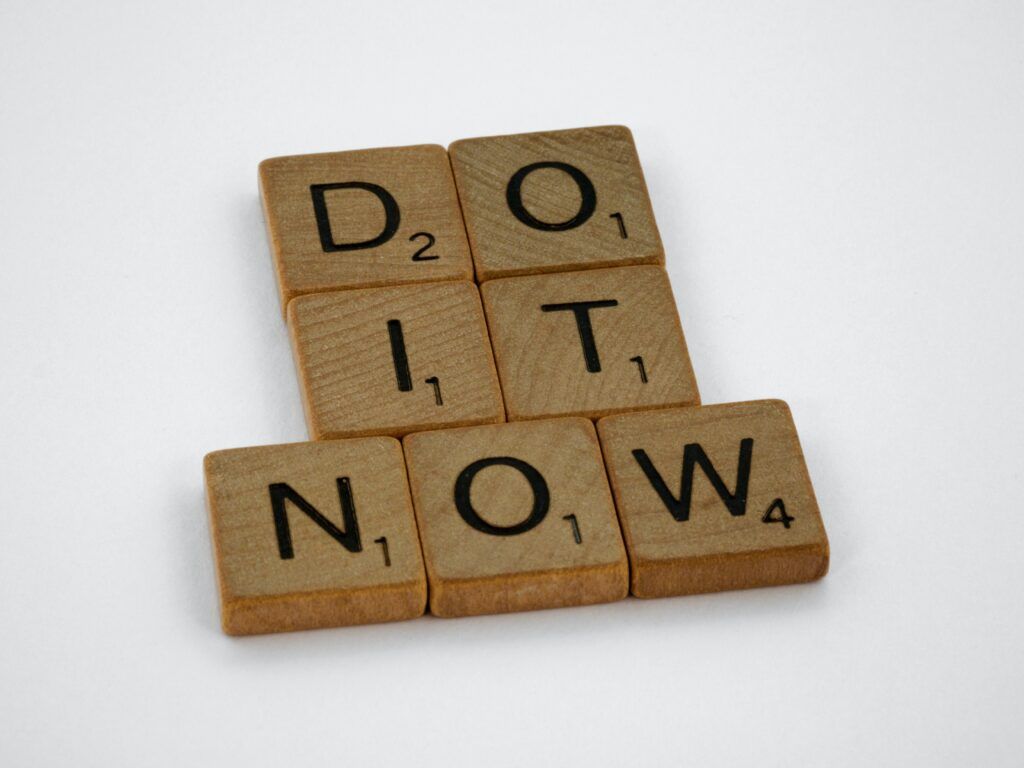6 Steps for Getting More Stuff Done

“Greg, how do you have time to do all the stuff you do?”
I’ve had friends from time-to-time remark that it seems like I get a lot done. They wonder if I have unlimited energy, or if I’m just a certain “type” of person who is able to accomplish more – while other “personality types” out there are doomed to be less successful in life.
The reality is, it’s neither of these things (although I would love nothing more than to have unlimited energy). The reason I’m able to be as productive as I am is thanks to several habits I’ve formed over the years. Or in more popular terminology, “hacks” that help me make the most of my time.
I’ve come up with 6 simple but powerful concepts that I’ve found work wonders for getting stuff done. You or anyone can implement these same tips into your routine and life and soon enough, you’ll see an increase in your own productivity.
Just remember that it’s important to stick with it – even the most effective habits don’t make much of a difference if you burn out after a week. Instead of trying all 6 of these tips at once, pick one or two and adapt more gradually to your lifestyle.
1. Define What You Want
Remember that old quote from the Cheshire Cat in “Alice in Wonderland”?
I don’t have the book in front of me so I’ll paraphrase in plain English: If you don’t know where you want to go, it doesn’t matter which path you take or what you do.
Without a vision, you are going to get lost in the weeds pretty quickly. In my experience, people burn out, feel overwhelmed or lose focus because they don’t have a guiding goal to begin with.
Make sure you have a vision (or goal) that is clear and concrete, that you can return to every time you need to make a decision about what to do or not to do. (Some people have things like photos or quotes hanging on their walls as a visual reminder).
For years, my vision was building a more financially secure life for my family. When I needed to schedule my day or my week, the things that I knew would help me achieve that vision took priority. It was easier to cut out watching ESPN on the weekend because I knew that the work I was doing was helping me achieve my vision.
2. Break It Down into Manageable Steps
Tell me which of these two sounds easier:
- “Make a deal with the banker this Monday.”
Or:
- “Do the following:
- Pick out ahead of time what I’m going to wear to the meeting
- On Sunday night, do a quick Google search on how to put my best foot forward at a bank meeting
- Prepare a portfolio of my successful investments over the last two years…”
Hopefully you see my point here: it’s a lot easier to break things down into steps.
When you have a plan that’s big and broad, it’s sometimes hard to know where to start or how to prepare. You might fall under the illusion that it’s hard, or even too hard (not true). A lot of this is in your head. That’s why breaking things down into steps is important.
When writing in your task list, consider breaking bigger tasks down into smaller steps. Don’t make the steps more numerous than necessary; simple and concrete is better. The effective way to get things done is to do one thing, one step at a time.
3. Hold Yourself Accountable
At some point, it really does come down to you having to just do it. (I don’t think it’s a coincidence the Nike slogan has become as famous as it has).
To make it easier, think of yourself as another person you respect. You wouldn’t be late to a meeting with your boss, would you? Can you imagine yourself putting off date night just because “you didn’t feel like it?”
It’s easier to show up for other people, because they expect us to. But we deserve our own respect as well. I know that Future Greg is very happy each time I stick to my task list and get stuff, and that he will likewise be disappointed when I slack off over the weekend.
As you show up for yourself each day it gets easier to keep doing so. If you want others to take you seriously, it’s important that you take yourself seriously. And part of that means staying on top things even when no one else is asking or reminding you to.
4. Block Off Time for Yourself
As much fun as it is to socialize and hang out by the water cooler (or whatever the post-pandemic equivalent is), it’s important to have time and space to yourself so that you can focus. Especially when it comes to crucial tasks.
This is easier to do when you have your own personal den or office, but even if your personal space is limited, you can still make sure that you have “alone” time to work. The key is consistency: make sure it’s the same time every day.
Many people, including myself, have found that either “before” hours or “after” hours work best. After 9 am and before 5 pm, people will typically require your time – whether in the form of meetings, phone calls, or other demands.
But in the quiet early hours of the morning, or in the later hours of the evening it’s often much easier to block off an hour or two to really focus on your vision, and the tasks you need to do to get you there. Figure out if you are a “morning” person or a “night” person, and schedule your alone time accordingly.
5. Keep a Task List
You may protest at this one. Task lists aren’t cool anymore, according to some of the latest gurus on the Internet. They are “overrated.”
I’ve got news for you: task lists work. If you feel like they’re boring or obvious, well, it’s because they’ve been around a long time and they will continue to be around for a long time for a good reason.
Your task list doesn’t have to be a generic Sticky Note sheet or piece of paper (though it could if that works for you). Some people like to get creative and use cute templates, stickers and other flourishes. Others prefer a digital format.
Choose whatever makes sense for you and is easiest to use. Some people like to be very detailed, listing things in order of importance and including the “time of day.” Others prefer to be as minimal as possible.
If task lists are new or less appealing to you, go with the simplest approach possible. Make sure your task list is in a prominent place to remind you.
6. Make Use of Your Spare Minutes
“Where does the time go?” Why, into all those spare moments here and there that we usually don’t think about!
During an “in-between” moment you might be tempted to play a phone game or do another activity that helps you unwind. Sometimes, you do need a break. But consider just how much more productive you can be by filling those extra blocks of time with things you need to get done. What you’ll find is that you’ll end up saving time by getting things done sooner.
In my case, I use the time I’m driving in the car for phone calls, especially with family and friends. “Windshield time” is a great opportunity to check in with others.
I listen to audio books and educational speakers while walking my dog, or doing the dishes. My martial arts instructor once gave me some excellent advice: “If you’re going to spend your time doing something mindless like watching TV, the least you can do is use that time to stretch and improve your flexibility.” His two-birds-with-one-stone approach has continued to influence the way I make the most of my spare minutes today.
Conclusion:
I did my best to make sure this list was short, and that the action items on it were specific and clear. Simplicity and clarity are important — without them, it’s easy to lose focus. And remember…
- Don’t try to master all of these things at once
- Repetition is key
- Use self-affirmation each time you stay on track
- Have friends or family members help you stay motivated and accountable, if necessary
- Revisit this list from time to time
- And finally: this is a guide, not an absolute standard. Take it easy and have fun in the process!



